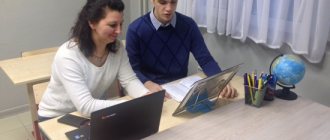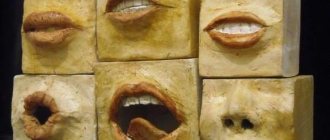The development of diction and articulation is an important part of the formation of speech culture. The child gradually masters beautiful pronunciation. The formation of the vocal apparatus and phonemic hearing ends by preschool age. However, the lack of clear pronunciation, poor articulation of phonemes and other diction deficiencies can be observed in schoolchildren and even adults. This specificity of speech is not a pathology. Diction exercises allow you to quickly cope with the problem.
Depending on the characteristics of speech development of children of different ages, speech therapists recommend various correction methods. Correcting diction will require painstaking homework, and in severe cases, a speech pathologist will be involved in establishing the correct pronunciation. Even when attending speech therapy classes (group or individual), practicing techniques and consolidating skills is carried out at home.
Stages of diction development
You can independently assess your child’s speech skills by comparing them with existing standards. However, it is worth remembering that these are average indicators. There are no exact rules.
Diction should be developed from the moment of birth. The mother sings nursery rhymes and lullabies to the baby, reads children's poems and fairy tales aloud.
From 6 to 12 months, the baby’s brain actively grows, including the formation of cells that provide speech skills. That’s why it’s so important to talk to your baby more often.
By 2-3 years, the speech structures of the brain are fully formed. By this age, the baby learns to pronounce words correctly and emotionally express thoughts and feelings. Therefore, he requires active training of the speech apparatus. But if there is no noticeable improvement in speech, there is no need to panic. It is better to visit a speech therapist and, in the absence of organic disorders, continue classes on the development of rhetoric.
Speech norms for children by age
Each age period has certain speech norms (the number of sounds, phonemes, words that the baby should pronounce).
From 0 to 12 months
The newborn attracts the mother's attention by screaming or crying. He begins to pronounce vowels by 2 months. And after 2-3 weeks, thanks to the guttural pronunciation, the mother hears “agu” or “abu”. Interaction with parents is important for the baby. He tries to repeat the sounds he heard from adults.
Experts advise infants to play children's songs, musical fairy tales, and audio books more often.
By the age of one year, a child learns to speak from 3 to 12 words consisting of one or two syllables.
From one to two years
The older the baby, the higher the clarity of pronunciation. Children actively accumulate vocabulary. They understand the meaning of the words addressed to them and fulfill the requests of mom and dad.
By the age of one and a half years, the baby usually speaks about 20 words.
This is the age of active exploration. The baby is interested in everything that surrounds him, quickly remembers new words and learns to reproduce them. Children's books with bright illustrations, which you carefully examine with your child while asking questions, help train diction.
At 2–3 years
By this age, children pronounce from 70 to 100 words, constantly increasing their passive and active vocabulary. The baby learns to coordinate nouns with adjectives and verbs. Begins to pronounce simple phrases. Articulation may be blurry. But it's not scary. In most cases, the disorder disappears on its own.
By 4–5 years
With preschool children, to improve their diction, you can learn short songs or poems, or ask them simple riddles. The baby can already be understood, despite the incorrect declension of nouns and the inconsistency of sentence members.
By the age of 4–5 years, children use 2 to 3 thousand words.
Preschoolers have a well-developed imagination, many of them invent their own language. Speech contains pronouns and numerals. Articulation impairment at this age is manifested in the absence of difficult-to-pronounce phonemes, the rearrangement of syllables or their omission.
Children learn to compose a story based on a picture, retell small texts, fairy tales, short stories, and recite poems from memory. They control their voice - speak softer or louder depending on the situation. Many people think within 10.
Junior school age
The diction of a primary school student is similar to that of an adult. Children communicate easily with peers, teachers and parents. They accumulate a good vocabulary - about 4.5 thousand words.
They can independently come up with an interesting and logical story. The main problem for schoolchildren is the incorrect use of accents.
Tongue twisters for training "r"
The sound [R] is correctly pronounced like this: the tip of the tongue is raised to the palate, and the lateral edges are pressed against the upper molars. The air passes sharply through the middle of the tongue, causing it to vibrate at the alveoli (front upper teeth). Below are tongue twisters for practicing the sound [P] in combination with other sounds:
- There is grass in the yard, there is firewood on the grass, don’t cut wood on the grass in the yard!
- They cut an ice hole and caught fish.
- A Greek was driving across the river, he saw a Greek - there was cancer in the river. He stuck the Greek’s hand into the river, and grabbed the Greek’s hand.
- Karl stole corals from Clara, and Clara stole a clarinet from Karl.
Of course, there are many pure sayings for training pronunciation and other sounds, in addition, there are complicated and specific options: liguria, shibboleth and others. You can also use even an ordinary book for speaking quickly. However, all this is beyond the scope of this article, which is aimed at introducing tongue twisters for the development of speech and diction. If you are experiencing serious difficulties pronouncing certain sounds, then you should contact a specialist who will give you the correct pronunciation. Otherwise, you risk learning incorrect pronunciation, which will then be very difficult to correct.
Correction of diction by age
Exercises to develop diction for the smallest children, preschoolers, primary schoolchildren and adults are different. When correcting a disorder, it is important to take into account not only age, but also the individual characteristics of the patient (young or adult).
Exercises for children of the first year of life
Infants do not have problems with diction and articulation. But this does not mean that there is no need to work with kids. To gain developed rhetoric at an older age and prevent the appearance of speech disorders, you should:
- Establish interaction with the child. Mom comments on all her actions, swaddling, bathing or putting the baby to bed. You can ask a one-year-old baby what he wants to eat, let him choose a dress or shoes before a walk. Of course, you shouldn't expect a detailed answer. But even a few sounds supported by gestures are an excellent result.
- Be sure to talk while walking on the street, meeting friends, shopping.
- Talk through what the child is doing - wiping the dust, putting away toys.
- Read books and look at pictures. In addition to fairy tales, illustrated children's encyclopedias are suitable. Pay attention to what your baby is interested in – animals, technology, plants.
- When talking to your child, speak clearly and correctly, like a radio announcer. There is no need to repeat after the baby, distorting or shortening words. Talk as you would to an adult.
If, despite daily activities, a child does not speak by the age of one year, there is no need to be upset. This is fine. The baby accumulates a passive vocabulary.
Activities for kids from 2 to 3 years old
If by the age of 2–3 years speech is completely absent or pronunciation is slurred, correction is required. It includes:
- Speech therapy games. For example, "Fun Alphabet". The adult pronounces the sounds loudly and clearly, and the child repeats after him.
- Open questions. Pay attention to “eaten” endings and missing syllables.
- Learning songs and poems using difficult-to-pronounce phonemes. Each line is spoken first by the parent and then by the child.
- Corrections. Stop your baby when he replaces one sound with another.
- Songs and cartoons. The educational video stimulates the development of correct articulation.
- Communication with peers.
Incorrectly pronouncing the sound “r” at this age is not considered a violation. You should contact a speech therapist if the problem does not go away within a year.
Working with preschoolers (4–5 years old)
During this period, correctional work is carried out in a playful way. The following tasks help to practice diction:
- Articulatory gymnastics for the muscles of the larynx and tongue. Exercises such as “gates,” “licking jam,” and “clocks” will help.
- Game "Find the sound". You can play it on the way to the garden or store. The child must answer where the sound ordered by mom or dad is “hidden”: at the beginning, middle or end of the word.
- My own example. Children always repeat after adults. Therefore, it is important to monitor your speech and avoid obscene language and filler words. It is important to show your child performances by politicians, actors, and singers. This is a great example to follow.
Don't forget about picture books. It is important to teach your child to compose a story based on a picture and describe it in detail. It is useful to learn poems and songs by heart.
Development of diction in a schoolchild
The development of diction in primary schoolchildren depends on the development of phonemic hearing: the ability to isolate individual words from a sentence and recognize given sounds in a word. Children are taught to divide small words into syllables, then large ones. This is necessary so that the student learns to understand the meaning of what he reads.
Help to polish diction in younger schoolchildren:
- Reading with retelling. You can turn this activity into a game, allowing your child to show his acting talent. Invite him to play the role of any hero from a fairy tale or story he just read.
- Riddles and games with words. For example, make up the maximum number of new words from a long word or come up with words where the letter “a” will be the first, second, third, fourth or fifth.
- Sound games. For example, say a word backwards, reading it from left to right. Either select the maximum number of synonyms for a given word, or find an error in a word.
- Proverbs and sayings develop the student's memory and are an effective way to correct articulation.
Diction disorders must be corrected as early as possible, otherwise it will be difficult for the student to learn to read and write.
Exercises to warm up your tongue:
“Horse” - you need to touch your tongue to the upper palate and then sharply lower your tongue with a clicking sound;
“Spatula” - open your mouth, stick out your tongue, reach your chin.
“Candy” - you need to rest your tongue on each cheek in turn. Mouth closed.
“Pendulum” - you need to stick out your tongue. Stretch it now to the right, now to the left.
“Needle” – stretch the tongue forward as much as possible. The mouth is open.
“Mushroom” - reach with the tongue to the upper palate, so that the frenulum is stretched.
“Turkey” - stick your tongue out of your mouth. Move it along your upper lip from side to side. Gradually increase the speed of movement and add a voice (pronounce different vowels while chanting).
“Mug” - open your mouth, stick out your tongue and roll it into the shape of a cup or mug.
“Drummer” - it is necessary to strike the upper teeth with the tongue, accompanied by pronouncing the sound “d”.
Important! For maximum effectiveness, each exercise must be performed for at least 2 minutes. To make it interesting for small children to repeat the same exercise over and over again, you can use rhymes, pictures, and small toys.
Diction problems in adults
If a violation of articulation in young children causes tenderness, in adults it develops into complexes. To prevent this, you will need to work on your pronunciation. You can carry out the correction yourself at home.
If a speech disorder cannot be eliminated on your own, you need to contact a speech therapist or speech pathologist. Such classes are aimed at correcting articulation, aligning speech rhythm and tempo, eliminating stuttering, burr, nasal tone or lisp.
What causes the problem
Many adults are faced with a situation where anxiety provokes a speech disorder. Diction deteriorates so much that others cannot understand the person. Breathing exercises will help you cope with anxiety.
The main thing for such a patient is to calm down. And only after that continue the conversation.
Learning to cope with increased anxiety will require daily practice. Diaphragm training and myogymnastics have a positive effect on diction:
- Take a deep breath, inflating your stomach as much as possible. Exhale, drawing it back.
- Take water into your mouth and hold for 15-30 seconds. Repeat 4-5 times three times a day.
Before an important speech or business meeting, carefully read your text. When communicating, watch how you speak, try not to panic and control the pace of your speech. If you feel like you are speeding up, stop and take a deep breath.
Nasality occurs if a person has difficulty breathing through the nose. Before contacting a speech therapist, you should visit an otolaryngologist and treat the disease that causes problems with nasal breathing.
Often the cause of a speech defect is polyps or a deviated nasal septum. These pathologies affect the pronunciation of the sounds “n” and “m” and distort the voice. After treating diseases of the ENT organs, a speech therapist will help correct articulation.
How to improve your diction
Human facial expressions play an important role in communication. The ability to control your emotions allows you to create the right image. This is especially important for those whose work involves public speaking. Speech therapy exercises allow you to work on public speaking skills, rhetoric and facial expressions, and group classes with a psychologist or defectologist allow you to practice.
Beautiful, clear diction is impossible without the ability to breathe correctly during a conversation. You need to practice speech breathing every day. To do this, take a deep breath through your nose and then slowly exhale through your mouth. Breathing exercises also prevent viral infections.
Sometimes “slurred” pronunciation is associated with impaired articulation. Slurred speech is a consequence of weak functioning of the muscles of the mouth, tongue and larynx. Most often the problem lies in the small opening of the mouth. In such a situation, articulatory gymnastics to train the muscles of the lower jaw will help.
Poor lip mobility affects the pronunciation of vowels and some consonants. The work of the tongue is important when articulating words with a large number of consonants. Even children's exercises for developing the muscles of the speech apparatus help improve diction. The main thing is to say the entire sentence in one breath.
Don't panic if your baby's speech is unclear. He just needs help. Daily play activities will help the baby develop the skills of correct and clear speech. If diction disorders persist into adulthood, a speech therapist-defectologist will help to cope with them.
How to work with tongue twisters correctly
Regular training requires not only our limbs, brain and other parts of the body, but also lips, tongue, respiratory organs - nose, larynx and lungs. The tongue is a special muscle in the human body that helps him not only cope with chewing food in the mouth, but also clearly and quickly pronounce sounds that form speech, through which people communicate with each other.
To ensure that your baby’s speech is measured and articulate, not burdened by “swallowed” and poorly pronounced sounds, teach him different tongue twisters. So, through repeated repetition of problematic sound combinations, your baby will be able to:
- develop correct pronunciation;
- learn to control your own voice;
- improve diction;
- enrich your vocabulary;
- develop memory;
- communicate his thoughts beautifully and clearly to the people around him.










